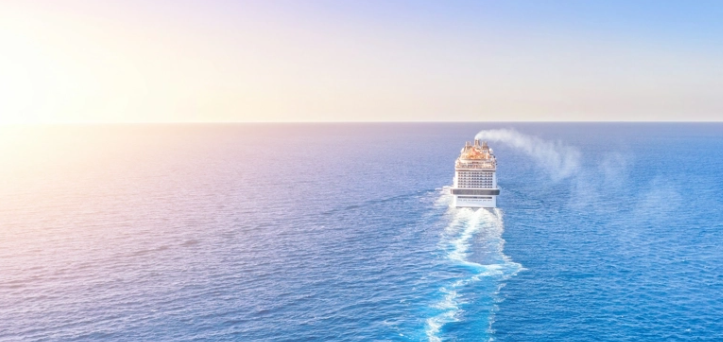Advancements in Environmental Technologies Among Cruise Lines
The global cruise industry, represented chiefly by the Cruise Lines International Association (CLIA), has been making steady strides in implementing advanced environmental technologies, reflecting an ongoing commitment to sustainable operations. Data gathered from 2018 through 2024 sheds light on meaningful progress across multiple areas, from operational efficiency enhancements to the uptake of alternative fuels.
Scope and Impact of CLIA’s Environmental Report
The annual Environmental Technologies and Practices (ETP) report, released by CLIA, profiles the environmental initiatives of ocean-going cruise lines representing over 90% of global cruise operations. The comprehensive report captures efforts such as testing biofuels, adopting fuel-flexible engines, increasing the use of lower-emission fuels, and maximizing energy efficiency.
According to CLIA’s president and CEO, Bud Darr, cruise lines are pioneers in maritime environmental innovation, implementing advanced systems like wastewater treatment, onshore power supply, and air lubrication technologies, alongside new dual-fuel engines. Investments into over 80 new ships incorporate these technologies to drive the future fleet toward greater green credentials.
Highlights of Environmental Practices and Technologies
| Category | Description | Impact Example |
|---|---|---|
| Alternative Fuels | Introduction of biofuels and increased use of lower-emission fuels reducing carbon footprint | Fuel-flexible engines capable of running on multiple fuel types |
| Energy Efficiency | Adoption of air lubrication systems to reduce hull friction and enhanced engine efficiency | Lower fuel consumption and emissions for existing and new vessels |
| Waste Management | Advanced wastewater processing systems to minimize marine pollution | Reduction in discharges of greywater and blackwater during voyages |
| Onshore Power | Ships connecting to shore-side electricity to reduce air pollution at ports | Decreased port-area emissions during docked periods |
Environmental Challenges and Industry Response
Despite past environmental controversies faced by cruise companies, including waste disposal issues and air pollution concerns, particularly in port areas, the industry has embraced a path toward greener practices. The logistical challenges linked to managing large-scale waste outputs, such as millions of liters of greywater and blackwater per cruise, have led to technological solutions and policy adjustments.
Reports hint at improvements in emissions control and the assignment of environmental officers aboard cruise ships to oversee compliance, crew training, and environmental stewardship. Programs encouraging recycling and sustainability onboard demonstrate proactive efforts to mitigate environmental impacts further.
The Importance of Sustainability in Cruise Tourism
Cruising today is not just about luxury and exploration but also about balancing economic benefits with responsible environmental practices. The adoption of green technologies helps maintain the attractiveness of cruise destinations by preserving natural ecosystems and minimizing pollution.
The cruise industry’s role in environmental stewardship supports sustainable tourism—a factor increasingly advantageous for travelers who value ecological responsibility as part of their travel decision-making.
How This Relates to Taxi and Transfer Services
While large cruise ships navigate the seas with greener technology, the journey onshore to and from ports remains part of the overall travel experience requiring eco-conscious choices. Taxi and transfer services that connect passengers to cruise terminals play a crucial role in ensuring the entire travel chain embraces sustainability, from airport pickups to final destination transport.
Platforms such as LocalsRide.com exemplify this transparency and personalized approach by allowing users to select vehicles with known environmental standards and view detailed driver and car information, promoting conscious and informed travel choices beyond the ship.
Summary of Key Takeaways
- The cruise industry, as represented by CLIA, has demonstrated measurable environmental improvements from 2018 through 2024.
- Innovative technologies such as dual-fuel engines, biofuels, and advanced wastewater systems are increasingly prevalent on newer cruise ships.
- Environmental officers and structured programs onboard contribute to better management of waste and emissions.
- Green practices enhance sustainable tourism, benefiting both destinations and travelers alike.
- Taxi and transfer services connected to cruise journeys should align with these environmental values to offer seamless, eco-friendly travel from the airport to the cruise port and beyond.
Making Informed Choices with LocalsRide
Important and interesting as these environmental advances are, they only tell part of the story. Even the most comprehensive reports and honest reviews can’t entirely substitute for personal experience. On LocalsRide, travelers can hire cars with drivers from verified providers at reasonable prices. This empowers guests to avoid surprises and ensure their trip aligns with their expectations and values. The benefits of convenience, affordability, and a wide range of vehicle options, coupled with additional services, provide a unique edge. The transparency offered by LocalsRide—showing car make, model, ratings, and driver information upfront—helps travelers pick exactly the right ride. Book your Ride with LocalsRide.com to enjoy a seamless and trustworthy transfer experience.
Looking Ahead
While the global tourism and travel landscape continues evolving, the developments revealed by CLIA’s environmental report highlight a growing trend towards sustainability in a significant travel sector. Although this news may not dramatically shift the broader tourism map overnight, it remains essential as the cruise industry integrates more eco-friendly operations. LocalsRide strives to keep pace with such changes, offering travelers dependable and transparent transfer services worldwide. Start planning your next adventure and secure your worldwide transfer with LocalsRide.
In conclusion, the gradual but steady adoption of environmental technologies within the cruise sector reflects a commitment to greener travel. From advanced engines to waste management, these improvements not only protect cruise destinations but enhance the overall tourist experience. For travelers making connections at airports or ports, platforms like LocalsRide ensure that sustainability and convenience continue onshore with precise, transparent, and personalized taxi and transfer services to complement your journey.

